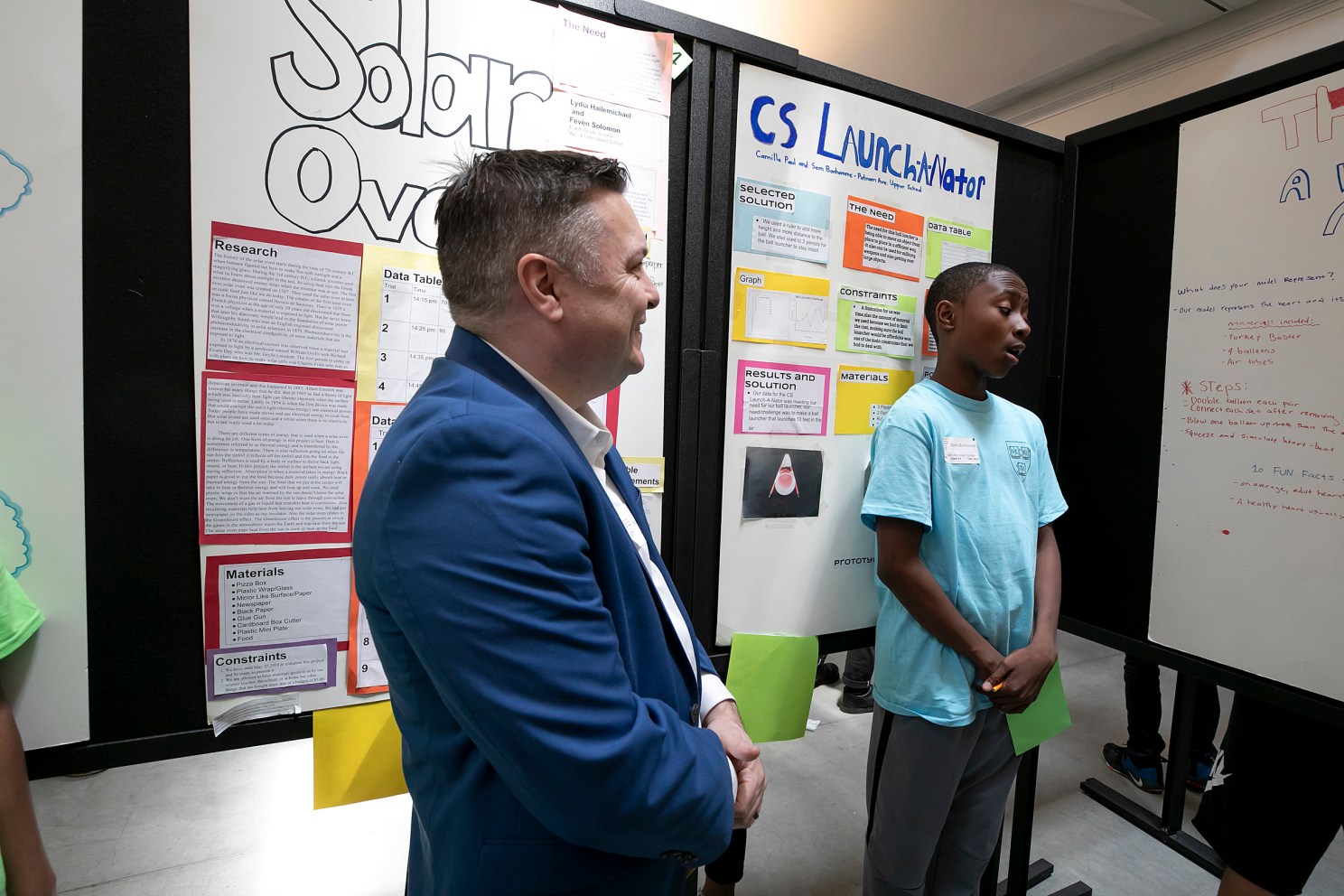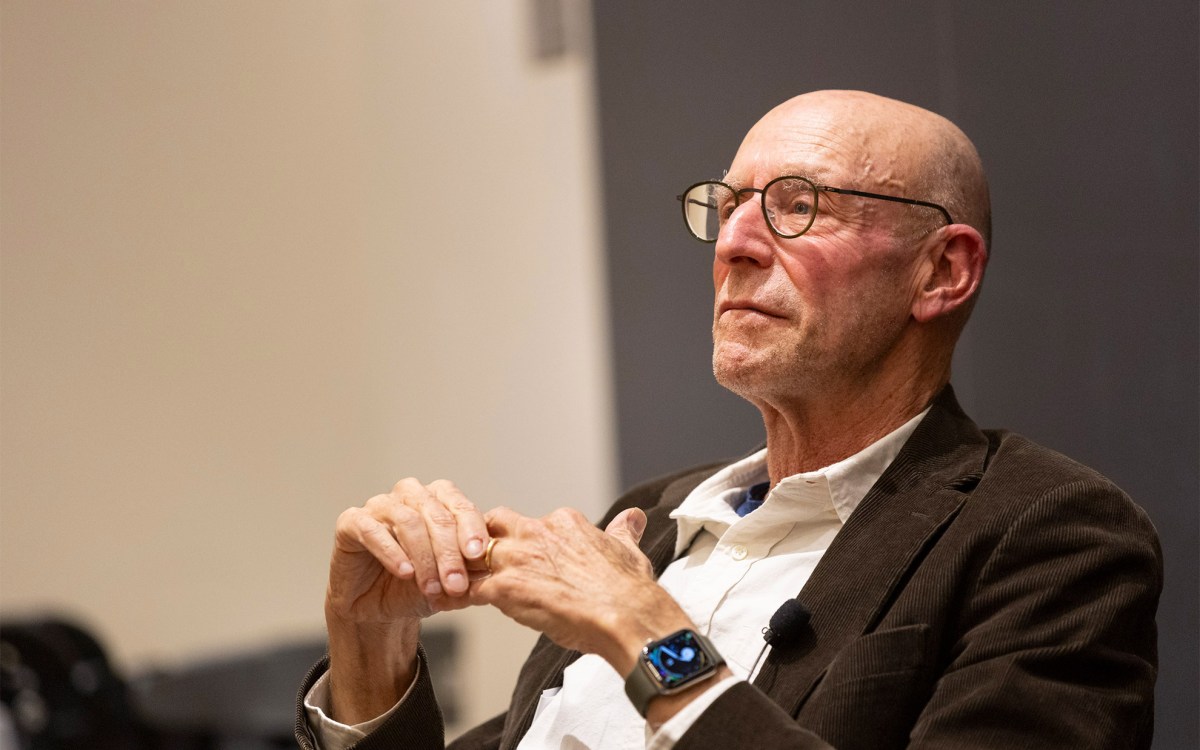Cambridge 8th graders showcase science projects at Harvard

Cambridge Mayor, Marc McGovern listens to a CPS 8th grader’s presentation on his solar oven. Rose Lincoln/Harvard Staff Photographer
Nearly 400 Cambridge eighth-graders visited Harvard’s campus last week for the eighth annual Science and Engineering Showcase. The event highlights Cambridge students’ year-end science projects, and allows them to present their findings to classmates, teachers, parents, and even Harvard students and professors. One goal is to build interest in STEM education at an early age by demonstrating how science can — and does — impact every facet of their lives.
Cambridge Superintendent of Schools Kenneth Salim, Ed.D. ‘11, said he was amazed at the breadth and depth of knowledge on display. Salim said he was impressed by how well the students presented their projects and findings to their peers and to adults. “These are some of the most important skills you can have: to communicate your ideas, to share your perspective, to be able to defend an argument, and share evidence. All the things that you’re doing — not just with your science projects and in history, math, English language arts, and other specialist classes — those are all skills that all come together when being able to share and defend your work,” Salim said.
Student’s explored a range of topics, including how to make a solar oven, how hot air balloons work, and even how hearts pump. Emmie Knippen and Jessica Chook, both from the Cambridge Street Upper School, choose to examine why depression can occur in some people, and not in others.
[gz_photo_layout_article_width image=”246588″ caption=”Emma%20Knippen%20(left)%20and%20Jessica%20Shook%20put%20the%20finishing%20touches%20on%20their%20project%20on%20depression.” credit=”Rose%20Lincoln%2FHarvard%20Staff%20Photographer” /]
The pair crafted a model head — demonstrating how on the outside, one can seem happy, and put together, while on the inside, they may in fact be struggling.
“We already knew that depression was not just feeling sad or down. It’s a serious mental illness that can really take over peoples’ lives,” said Knippen. “We learned that you can be treated for depression through therapy and sometimes medications.”
The two acknowledged that they both know people struggling with depression, and that through their research, feel they have developed a better understanding of both the severity, and prevalence, of mental health disorders.
Cambridge Mayor Marc McGovern said the students’ projects “exhibited a tremendous amount of creativity, ingenuity, and critical thinking. You made things launch. You made things hover. You made things fly through the air. You even made me have a craving for s’mores,” he said, referencing to one tasty project in particular.
He also challenged students to “continue to be curious, continue to be inquisitive and continue to ask questions, because the world needs that now more than ever.”
Salim also thanked Harvard for inviting the students on campus, and for remaining engaged through countless partnerships and opportunities. “We in Cambridge,” he said, “are so fortunate to have Harvard in our backyard — the chances that you have to see labs, to be able to present to Harvard students — these are all things that most students in this county don’t have a chance to do.”




